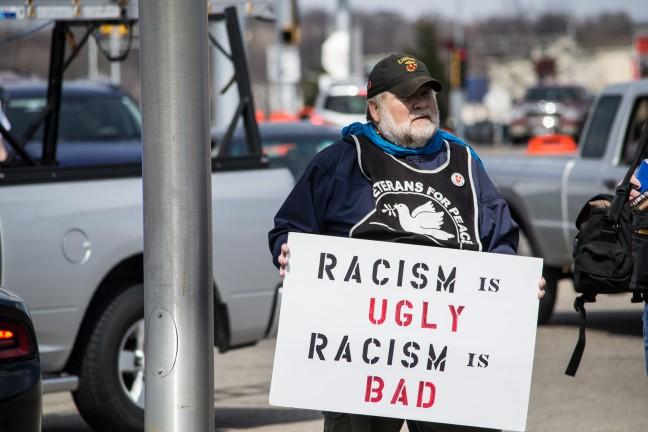The first step to solving any problem is admitting it exists in the first place. Whether it’s through beating addiction or improving one’s mental health, many people use this sentiment to improve their lives.
The first step is often the hardest — refusing to face a painful, ugly reality is easier than trying to change. In fact, mental health experts claim denial is one of the easiest and most common defense mechanisms. Denial is how one would defend his superiority complex, or accept his outdated prejudices, as truth. A prime example of this case lives in the Oval Office.
Unsurprisingly, President Donald Trump continually denies the existence of one of his largest flaws — his casual, yet pervasive racism. Despite reports of his vulgar language in regards to African countries, or using accents to imitate India’s prime minister, Trump continually asserts that he is not a racist. Given how fond the current administration is of alternative truths, it’s not altogether surprising that Trump would claim this, if not to simply validate his ever-growing ego.
Panel discusses how history of racism, white supremacy played role in Charlottesville
But Trump’s racism is symptomatic of an even deeper issue. On the topic of Trump’s vulgar language against Haiti, U.S. Senator Richard Durbin, D-Illinois, said “I cannot believe that in the history of the White House in that Oval Office, any president has ever spoken the words that I personally heard our president speak.” But racism in the White House is not a new phenomenon. The fact that Durbin, a liberal senator, is not aware of this fact shows how deep-seeded the denial of racism is in the U.S.
Though Thomas Jefferson wrote, “All men are created equal,” he described black people as “inferior to the whites in the endowments of both body and mind.” Over a quarter of all U.S. presidents held slaves in their lifetimes and Jefferson was one of eight who owned slaves while in office. Even presidents who are lauded for their contributions to race progress and progressivism are not innocent of racism. Abraham Lincoln may have freed the slaves, but also told black guests of the White House, “not a single man of your race is made the equal of a single man of ours.”
Theodore Roosevelt was an advocate for Social Darwinism and the elimination of Native Americans and his cousin Franklin Delano Roosevelt was responsible for the internment of thousands of innocent Japanese-Americans during World War II. President Lyndon B. Johnson, who signed the Civil Rights Act of 1946, was an avid user of the n-word. So yes, Senator Durbin, far worse sentiments have been shared in the Oval Office. Denying their happenings does not make them go away.
DACA battle reveals dangerous implications of government without checks and balances
This history is not meant to excuse Trump’s behavior. Whether it be by insinuating Mexicans are criminals and rapists, turning a blind eye to the hurricane victims of Puerto Rico, or calling violent white supremacists “very fine people,” Trump is a horribly prejudiced person. But his case of racism-denial has been more blunt and forward than those of presidents past. It is no wonder Trump chooses to deny his bigotry — it is a presidential precedent. A precedent that the U.S. public ignored for far too long, perhaps because many deny their own bigotry. Let’s be honest— only racists say they’re not racist.
From his cell in Birmingham jail, Martin Luther King Jr. wrote, “shallow understanding from people of good will is more frustrating than absolute misunderstanding from people of ill will.”
It is likely Trump lies in the latter category. He was racist before the presidency and he will be a racist long after the presidency. But for those who believe they are people of good will, do not take after the U.S. presidents. Do not deny the truth. Denial is a way defend our faults, instead of changing them. Denial is how we become complicit with the injustice that surrounds us. Stop denying the truth — work to change it.
Abby Steinberg ([email protected]) is a freshman majoring in political science and intending to major in journalism.





















